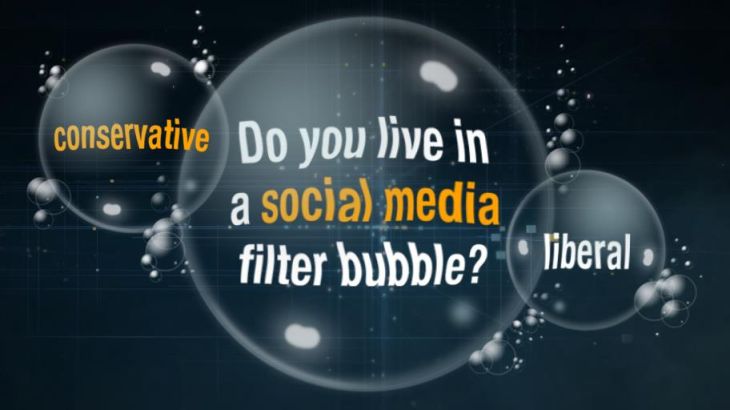
Popping your political filter bubble
Does technology help or hurt engagement with others?
When was the last time you visited a website that held opposing political views to your own? If you’re most people, it’s not that often. In fact it’s something that is happening less and less in the United States.
Social media and the internet have played a role in perpetuating confirmation bias, or “the tendency to seek confirming evidence” through search engine bias. As technology companies personalise your experience, generate likes and clicks, articles and opinions a user disagrees with are less likely to come up in their feed, limiting the information a user is exposed to and reinforcing their beliefs. That echo chamber reached a crescendo during the 2016 US election when people on both ends of the political spectrum accused each other of living in a bubble, both online and in real life, but the rise in partisanship and an increasingly polarized society existed long before the 2016 election.
Now, technology companies and some media outlets are working to get users out of their “filter bubbles” in an effort to understand the other side. The Chrome extension, Escape Your Bubble asks, “who would you like to be more accepting of?” A drop down box offers two choices: Republicans or Democrats. The tool then inserts articles in a search to help you “be more understanding and accepting of our fellow countrymen”. Another extension PolitEcho, “shows you the political biases if your Facebook friends and news feed…..based on the political Facebook pages they like”. FlipFeed on Twitter allows you to view someone else’s Twitter feed (without revealing their identity) from a different political perspective. The Guardian now has a weekly column called “Burst Your Bubble”, a “guide to conservative articles worth reading to expand your thinking” and the newsletter Right Richter is “a media digest for people who don’t usually consume right-wing news”.
How much responsibility should technology companies shoulder for exacerbating the problem, and how effective is the creation of bubble-bursting tech?
In this episode of The Stream, we speak with:
Mostafa M. ElBermawy @mbermawy
Digital media and marketing expert
mostafaelbermawy.com
Amanda Crowell @aj_crowell
Professor of educational psychology, Hunter College CUNY
powerfulpeony.com
Noah Millman
Senior Editor, The American Conservative
theamericanconservative.com
What do you think? Leave your thoughts in the comments below.